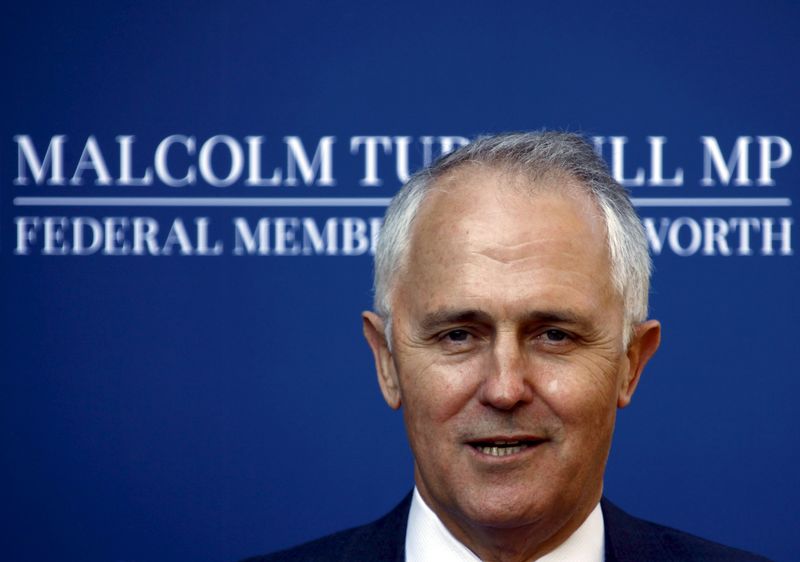SYDNEY, July 5 (Reuters) - Counting of 1.5 million postal and absentee votes critical in Australia's cliffhanger election began on Tuesday as loyalists of Prime Minister Malcolm Turnbull defended their embattled leader against calls for his resignation.
Turnbull's conservative coalition has secured 68 seats, opposition Labor 67, with 10 seats in doubt, according to projections by the Australian Broadcasting Corporation. The major parties need 76 seats to form a majority government.
Vote counting is expected to drag on for days, possibly weeks, leaving Australia in a political vacuum.
Turnbull's disastrous polling at Saturday's election has led to attacks from inside and outside his party, as the political stability he had sort with an early election evaporated with a wave of independents winning office.
Attorney-General George Brandis has warned his colleagues that sniping at Turnbull threatens to undermine the prime minister's ability to bargain with those very independents.
"It is not helpful for anyone on the coalition side to be engaging in the kind of public criticism which might potentially weaken Mr Turnbull's bargaining position," Brandis told ABC Radio on Tuesday.
"Stability is always better than instability, discipline is always better than indiscipline, playing a team game is always better than self-indulgence."
Saturday's election was meant to end political turmoil that had seen four prime ministers in three years. Instead, it left Turnbull's own leadership in question less than a year after he ousted then prime minister Tony Abbott in a party-room coup.
Turnbull is being blamed for a series of missteps, beginning with triggering the double dissolution of parliament in May, sending both upper and lower houses to the ballot box, and a long eight-week campaign that allowed time for the opposition Labor to hit key issues like healthcare and company tax cuts.
Conservative Senator Cory Bernardi has called for a debate about Turnbull's leaderships as key independents who could hold the balance of power refuse to commit to either the coalition or Labor.
A senior political source within the Nationals party said on Monday that Turnbull's coalition partner did not blame him for the "disappointing" showing but acknowledged rumblings about the prime minister's future.
"There is and will be talk about the future of the coalition and who leads it," he told Reuters under the condition of anonymity.
The stalemate has allowed independents like Pauline Hanson, founder of the controversial far right One Nation party, to steal the spotlight. Hanson used her first press conference as senator-elect on Monday to repeat warnings that Australia was being "swamped by Asians".
